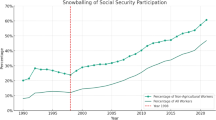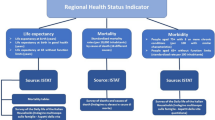Abstract
In the aftermath of the economic crisis of the late 1990s, the Korean government reformed health insurance system to enhance social equity and solidarity. This article identifies the institutional features and political dynamics involved in completing the reform. The Korean case suggests a model of counter-movement that differs from the historical experiences of both democratic corporatist and liberal welfare states. Two institutional conditions within the politics of crisis contributed to the reform. A legacy of limited state welfare was critical in providing the impetus for reforming health insurance system. More importantly, the crisis maximized the state’s coordination capacity by mobilizing a coherent bureaucracy under the presidential authority, and by limiting interest politics. The Korean experience has important implications for the study of economic crisis and social policy response. The way in which a crisis provides new contexts for welfare and policy making institutions, rather than the institutions themselves, should be the main focus in analyzing policy responses. The focus on the political dynamics of an economic crisis helps us acknowledge the limit of ideological forces of a crisis in facilitating a particular policy response.
Similar content being viewed by others
Notes
He argued that this fantasy had been legitimated because it was associated with the concept of freedom. While private ownership and free enterprise were deemed the essentials of freedom, regulation and control were depreciated as a refutation of freedom. Polanyi criticized this fantasy for making people abandon justice and welfare, which regulation and control can create.
While explaining why socialism did not take root in the United States, Lipset argued that the United States differed from other European nations in its strong antagonism against a central state. The founding fathers of the United States designed a constitution explicitly avoids strong government (Lipset 1996).
National health insurance had a significant political implication. It was first introduced in 1977 under the pressure of competing against North Korea on its social security system. North Korea had a universal and free health care system that was used for demonstrating the superiority of its system, while the health system was the weakest point of the welfare system in South Korea. National health insurance was expanded to the rural population in 1988 and the urban self-employed and regional residents in 1989 to complete the nationally universal insurance system.
East Asia’s lower inequality has been attributed to various factors: the regimes could avoid interest group pressures that demanded particular privileges (Campos and Root 1996); a high proportion of public investment cultivated balanced development between cities and rural areas; the universal education system with people’s enthusiasm for education contributed to the upward mobility of society.
A group of civic activists and health related professionals established an organization called the “Health Coalition.” One of the two nation-wide union associations, the KCTU (Korean Conference of Trade Unions) joined the coalition, which was crucial in politicizing the health insurance issue during the economic crisis later.
“Corporatism” refers to a system where representatives of major interest groups (called corporations) regularly structure their expectations about each others’ behavior and settle any problem and conflict through negotiation and joint agreement (Schmitter 1974).
Only the Federation of Korean Trade Unions (FKTU) was officially recognized by the government. The Korean Conference of Trade Unions (KCTU) formed in 1995 was an illegal rival national confederation composed of more radical and progressive trade unions espousing broad social and political agendas.
A total of 171 financial institutions including five banks were closed down or suspended by 1999. Later, the IMF showed satisfaction with Korea’s observance of “international standards and codes,” especially in the financial sector, stating in its report that “this sector has undergone significant consolidation: banks have become more profit oriented, cutting costs, streamlining their operations, shedding staff, and consolidating branches…. Foreign participation in the banking sector has tripled since 1996” (IMF 2003).
This claim was powerful in cancelling the integration efforts back in 1989; President Roh Tae-Woo vetoed the already passed integration bill for this very reason.
Evans argued that the internal cohesion is made possible by the norm of rule-following that guides bureaucratic actions with clearly specified rules, preventing individualistic and predatory practices. Chibber (2002) argued that this bureaucratic culture is not enough but should be complemented by the appropriate power relations within the state functionaries. An appropriate allocation of power among state policy agencies empowered nodal agency to discipline other agencies, preventing state fragmentation.
Evans suggested that neoliberal globalization may create a set of conditions that induce “counter-hegemonic globalization,” partly because the threat to social security must enhance the potential for counter-movement for greater social protection (Evans 2008, p. 273).
References
Campos, J. E., & Root, H. L. (1996). The Key to the Asian Miracle: Making Shared Growth Credible. Washington DC: Brookings Institution Press.
Caporaso, J. & Tarrow, S. (2008). Polanyi in Brussels: European institutions and the embedding of markets in society. RECON-Online-Working Papers. 2008:1.
Chibber, V. (2002). Bureaucratic rationality and the developmental state. American Journal of Sociology, 107(4), 951–989.
Cumings, B. (1998). Korea’s other miracle. The Nation, 266.
Dion, M. (2009). Globalization, democracy, and Mexican welfare: 1988–2006. Comparative Politics, 43(1)
Dobbin, F. (1993). The social construction of the great depression: industrial policy during the 1930s in the United States, Britain, and France. Theory and Society, 22(1), 1–56.
Evans, P. (1995). Embedded Autonomy: States and Industrial Transformation. Princeton: Princeton University Press.
Evans, P. (2008). Is an alternative globalization possible? Politics and Society, 36(2), 271–305.
Fourcade-Gourinchas, M., & Babb S. (2002). The rebirth of the liberal creed: Paths to Neoliberalism in four countries. American Journal of Sociology, 107(9).
Haggard, S., & Kaufman, R. R. (2008). Development, Democracy, and Welfare States: Latin America, East Asia, and Eastern Europe. Princeton: Princeton University Press.
Hong, K.-Z., & Song, Ho-Keun. (2005). An analysis on the social policy networks: a comparison of the Kim Young-Sam government and the Kim Dae-Jung government. Korean Journal of Social Welfare, 57(4), 5–34.
Huber, E. (2004). Globalization & social policy developments in Latin America. In M. Glatzer & D. Rueschemeyer (Eds.), Globalization and the Future of the Welfare State. Pittsburgh: University of Pittsburgh Press.
International Monetary Fund. (2003). Republic of Korea: Financial System Stability Assessment. IMF Country Report No. 03/81.
Jung, J-J. (1995). Mafia of social policy bureaucrats blocking the integration of the health insurance system. Social Critic Road. March (in Korean).
Katzenstein, P. J. (1985). Small States in World Markets: Industrial Policy in Europe. Ithaca: Cornell University Press.
Kim, K-W. (1983). The discussion of political welfare: a content analysis of presidential statements from 1962–1983. Korean Journal of Political Science, 17(1) (in Korean).
Kim, E.-M. (1997). Big Business, Strong State. Albany: SUNY Press.
Kim, J-D. (2001a). The Third Way of Health Care Security. Hannuri Media Press (in Korean).
Kim, Y.-M. (2001b). Welfare state or social safety nets? Development of the social welfare policy of the Kim Dae-Jung administration. Korea Journal, 41(2), 169–201.
Kim, Y-B. (2002). A critical review about the typology for Korean welfare state. In Yeon-Myung Kim (Ed.), Debates on the Characteristics of Welfare State in Korea. Seoul: Human and Welfare (in Korean).
Koo, H. (1987). The interplay of state, social class, and world system in East Asian development: The cases of South Korea and Taiwan. In F. C. Deyo (Ed.), The Political Economy of the new Asian Industrialism (pp. 165–181). Ithaca: Cornell University Press.
Krugman, Paul. (1998). What happened to Asia? Unpublished manuscript. http://web.mit.edu/krugman/www/DISINTER.html accessed Dec. 8, 2010.
Kurzer, P. (1993). Business and Banking: Political Change & Economic Integration in Western Europe. Ithaca: Cornell University Press.
Kwon, Hyuck-Ju. (2002). Welfare reform and future challenges in the Republic of Korea: beyond the developmental welfare state? International Social Security Review, 44(4), 23–38.
Lim, H.-C., & Jang, Jin-Ho. (2006). Neo-Liberalism in post-crisis South Korea: social conditions and outcomes. Journal of Contemporary Asia, 36(4), 442–463.
Lipset, S. M. (1996). American Exceptionalism: A Double-Edged Sword. New York: W.W. Norton & Co.
Pempel, T. J. (1999). The enticement of corporatism: Appeals of the Japanese model in developing Asia. In Dennish L. Mcnamara (Ed.), Corporatism and Korean Capitalism. Routledge Studies in the Growth Economies of Asia. 24. London & New York: Routledge.
Pierson, P. (1994). Dismantling the Welfare States? Reagan, Thatcher, and the Politics of Retrenchment. Cambridge: Cambridge University Press.
Polanyi, Karl. (2001 [1944]). The Great Transformation: The Political and Economic Origin of Our Time. Boston: Beacon Press.
Prasad, M. (2005). Why is France so French? Culture, institutions, and neoliberalism. American Journal of Sociology, 111(2), 357–407.
Quadango, J. (2004). Physician sovereignty & the purchasers’ revolt. Journal of Health Politics, Policy & Law, 29(4–5), 815–834.
Rodrick, D. (1998). Why do more open economies have bigger governments? Journal of Political Economy, 106(5), 997–1032.
Rueschemeyer, Dietrich, & Evans, Peter B. (1985). The state and economic transformation: Toward an analysis of the conditions underlying effective intervention. In Peter B. Evans, Rueschemeyer Dietrich, & Skochpol Theda (Eds.), Bringing the State Back In. Cambridge: Cambridge University Press.
Ruggie, J. G. (1982). International regimes, transactions, and change: embedded liberalism in the postwar economic system. International Organization, 30(2), 379–415.
Schmitter, P. (1974). Still the century of corporatism? Review of Politics, 36, 85–131.
Song, Ho-Keun, & Hong, K. Z. (2008). Globalization and social policy in South Korea. In M. Glatzer & D. Rueschemeyer (Eds.), Globalization and the Future of the Welfare State. Pittsburgh: University of Pittsburgh Press.
Steinmo, S. (1993). Taxation and Democracy. New Haven: Yale University Press.
Stiglitz, J. E. (2000). The insider-what I learned at the world economic crisis. April: The New Republic. 17.
Swank, D. (2002). Global Capital, Political Institutions, and Policy Change in Developed Welfare States. Cambridge: Cambridge University Press.
Wade, R. (1990). Governing the Market: Economic Theory and the Role of Government in East Asian Industrialization. Princeton: Princeton University Press.
Weiss, L., & Hobson, J. M. (1995). States and Economic Development: A Comparative and Historical Analysis. Cambridge: Polity Press.
Welfare Perspective (2001). People’s Solidarity for Participatory. May (in Korean): Democracy.
Wong, J. (2004). Welfare Politics in Taiwan and South Korea. Ithaca and London: Cornell University Press.
Woo-Cumings, M. (1998). National security and the rise of the developmental state in South Korea and Taiwan. In H. S. Rowen (Ed.), Behind East Asian Growth: The Political and Social Foundations of Prosperity. London: Routledge.
Author information
Authors and Affiliations
Corresponding author
Rights and permissions
About this article
Cite this article
Kwon, OJ. The logic of social policy expansion in a neoliberal context: health insurance reform in Korea after the 1997 economic crisis. Theor Soc 40, 645–667 (2011). https://doi.org/10.1007/s11186-011-9155-3
Published:
Issue Date:
DOI: https://doi.org/10.1007/s11186-011-9155-3




